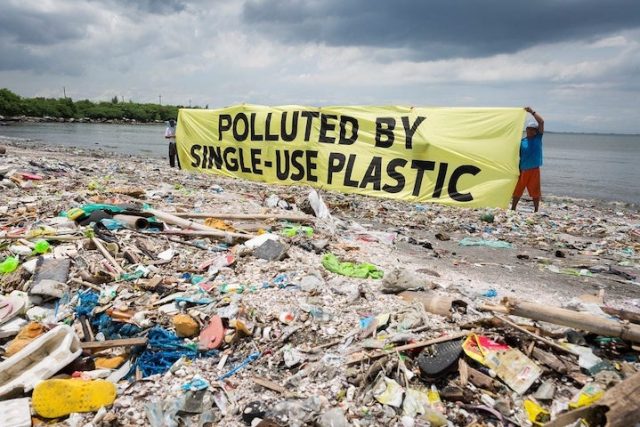
India causes the highest amount of plastic pollution in the world, a new study has discovered India burns about 5.8 million tons of plastic every year, and it further releases 3.5 mt of plastics into the environment (land, air, water) as debris. In total, the country is responsible for 9.3 mt of plastic pollution in the world every year, which is significantly more than the countries next in this list, including Nigeria that contributes 3.5 mt of plastic waste, Indonesia at 3.4 mt and China at 2.8 mt.
According to the study, carried out by University of Leeds, around 251 mt of plastic waste is produced every year in the world, which is enough to fill up roughly 200,000 Olympic sized swimming pools. Approximately 20 per cent of this waste which is about 52.1 mt, is “emitted” into the environment, unmanaged.
According to the authors “managed” waste refers to the waste that is collected by municipal bodies, and either recycled or sent to a landfill. While the “Unmanaged” waste refers to plastic which is burnt in the open, uncontrolled fires producing fine particulates and toxic gases like carbon monoxide. These are even more dangerous than plastic being accumulated in landfills because the particulate matter and the toxins released from plastic burning has been linked to heart disease, respiratory disorders, cancer, and neurological problems. The unmanaged was also includes plastic which ends up in the environment as unburnt debris polluting oceans, mountains, and other bio sensitive zones.
Of the unmanaged waste, roughly 43% or 22.2 mt is the form of unburned debris and the rest, amounting to 29.9 mt, is burnt.
Treaty on Curbing Plastic Pollution
The study comes at a time when a legally binding international treaty is being negotiated for curbing plastic pollution. In 2022, the UN Environmental Assembly agreed to develop such a treaty by the end of 2024. According to experts, this might be the most important environmental accord since the Paris Agreement on climate change in 2015.
However, reaching a consensus on what it should entail has been challenging.
According to the fossil-fuel producing countries and industry groups, plastic pollution must be viewed as a “waste management problem”. They believe that the focus should be placed on effective management instead of reducing the production. On the other side of the spectrum, European Union and Africa are lobbying for phasing out single use plastics and introducing bans or curbs in production.
The problem with considering plastic pollution as waste management problem is the economics and inconvenience of recycling the plastic that is already in circulation. Which is why, experts have said that if the plastic is produced, it is impossible to completely avoid pollution.
How the negotiations will conclude, will be known in a matter of time. However, in the meantime, it is our responsibility as citizens of India, to exhibit responsible behaviour in our daily lives, especially with respect to producing and managing plastic pollution.
Source link
Modified by Maaaty at Cheap Generic Pharmacy

